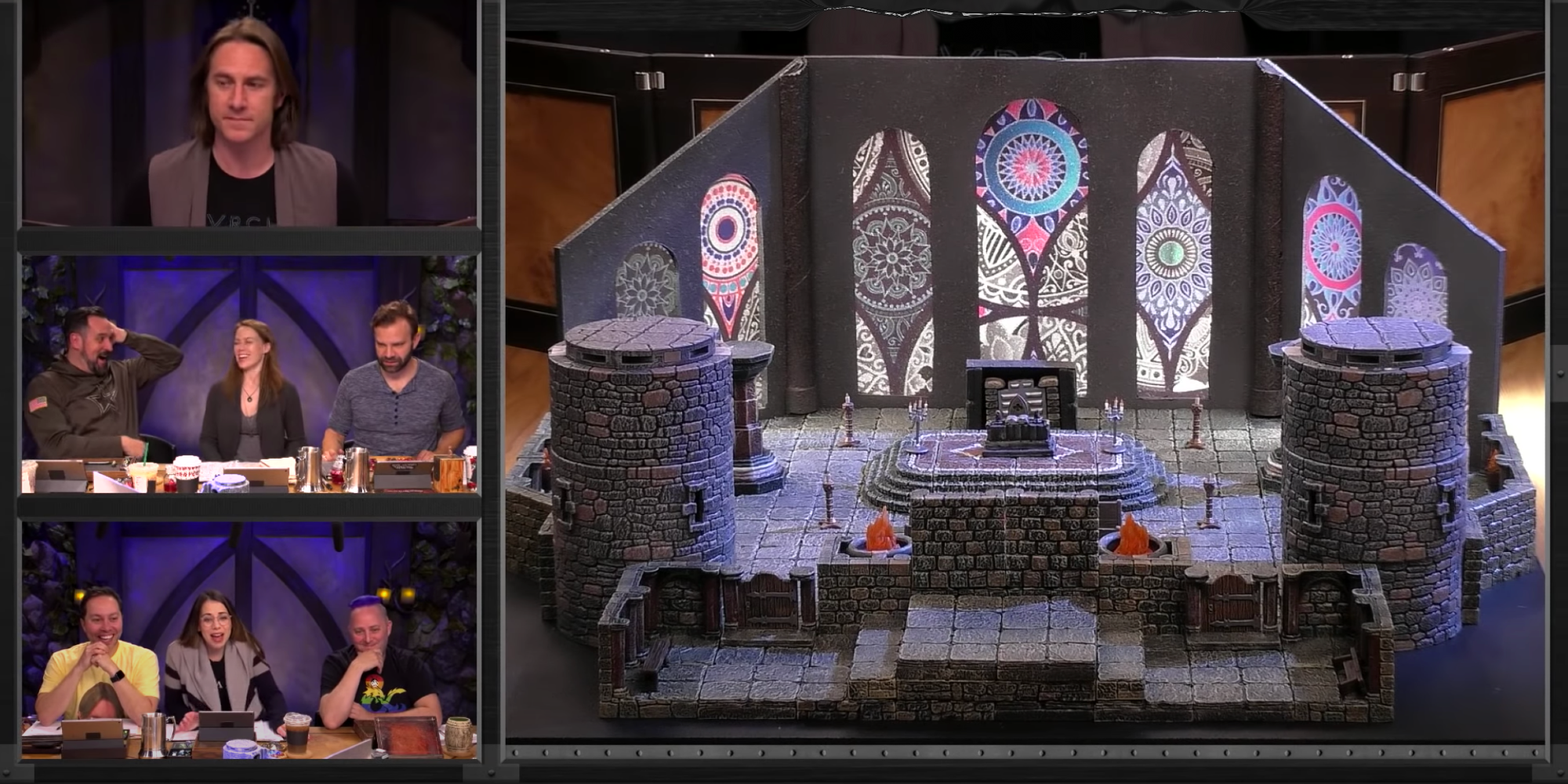Dungeons & Dragons is known for the joys (and frustrations) of both its players and its DMs, all of whom provide essential elements to a successful game. A campaign can be a massive undertaking, and arguably the most important person in each session is not the players but the DM, who acts as a puppet master for the entire story.
The DM is responsible for everything that happens in both one-off games and long, ongoing campaigns. For the latter, they must know the personalities of (and have stats for) every NPC, create and understand their maps well, and do all of this while crafting an engaging narrative for their party, all within the confines of Dungeons & Dragons' settings and lore. They work best when they can be wonderful improvisers, able to run with the story when the party decides to do something unexpected. It's a big role, and in many ways a DM can make or break a campaign.
There are several DMs who have gained a reputation for excellence, such as Matthew Mercer or Aabria Iyengar, who can draw in players and audience alike with mesmerizing words. Looking at those examples, combined with the sheer weight of responsibility of the role, it's easy to understand why many feel intimidated by the idea of DMing for the first time. Fortunately, people don't need to be part of Critical Role to run an excellent campaign. Here are some key tips to being a great first time Dungeons & Dragons DM.
What First Time Dungeons & Dragons DMs Should Do
One thing that many first time DMs overlook is the importance of storytelling. Whether using a preconstructed story from Wizards of the Coast, or designing an original narrative from scratch, it's important for a campaign to have a purpose, rather than the party merely wandering through aimless encounters. Dungeons & Dragons isn't all rolling for initiative or getting to know the natives at the local tavern; it's also setting the scene, giving NPCs unique voices and telling the story. Not only will it help keep players (and therefore their characters) engaged in gameplay, it will also keep the session fun.
The bulk of DMing a Dungeons & Dragons campaign is prep work, even when it doesn't seem needed. This includes preparing maps for players to follow, creating character sheets and stats for every NPC, monster, and enemy the party may encounter, and writing the narrative itself - or at least its broadest strokes. Having all of this information fully fleshed-out and well-organized ahead of time will allow players and DM alike to fully engage with gameplay during a session. Going the extra mile ahead of a session will also come in handy when players make an unexpected decision and visit a different area or pursue a different quest than what was planned for the narrative.
Finally, DMs shouldn't be afraid to admit they're not sure about something and need to check their prep notes. Not only is double-checking better than giving an incorrect answer, but searching through the 5e handbook for information amidst the action is part of the game's charm. Dungeons & Dragons is an immense game. Such an action will confirm to players their DM is making the right decision, and if proper pre-planning has been done, it shouldn't need to slow the action down too often.


